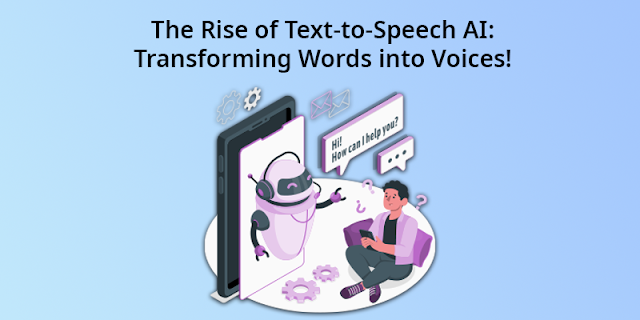Techdrive Support - The Rise of Text-to-Speech AI: Transforming Words into Voices
The voice, with its complex melodies and emotional undertones, has always been a powerful way to talk to others. With the rise of text-to-speech (TTS) AI, the way words are turned into voices is changing, making it harder to tell the difference between humans and machines. This revolutionary technology isn't just about making things easier; it's also about making things more accessible and interesting and changing the way we get information.
From Robotic Tones to Expressive Ensembles: When TTS first came out, voices that sounded cold and monotonous. Today, AI has brought artificial speech to life by creating voices that are expressive and can show emotions, change based on the situation, and even imitate certain accents and intonations. This progress makes it possible for people and computers to interact in a more natural and interesting way. It makes it possible for people to connect more deeply with virtual assistants, interactive learning platforms, and even audiobooks.
Beyond Bars: A Lighthouse for Acceptance: TTS AI is a bright spot of hope for people who have trouble seeing or learning. By turning text into spoken language, it breaks down traditional barriers and gives people the power to get information and education on their own. Imagine blind people listening to novels through AI-narrated audiobooks or dyslexic students getting feedback on their writing through audiobooks. There are really no limits to what can be done to be inclusive.
A Symphony of Uses: TTS AI can be used for a lot more than just accessibility. In the business world, it's changing e-learning and corporate training by making learning more personalized and interesting. Imagine presentations that are interactive and are narrated by AI voices that are customized to the language and culture of the audience. TTS AI is also being used by customer service chatbots, which makes interactions more natural and empathetic, which makes customers happier.
Getting Creative: Giving Every Story a Voice: Creative fields are using TTS AI to make stories come to life. The options are endless: movie trailers and animations can have custom-made narrations, and AI voices can read audiobooks that change based on the character's mood. Imagine documentaries about the past being read by people who lived in those times, or children's books coming to life through characters whose voices are unique and interesting.
Problems and Things to Think About: Anytime there is a powerful technology, there are things to think about that are moral. Deepfakes and the possible bad uses of synthetic voices are issues that need to be carefully looked into. As TTS AI develops, strict rules and responsible development are needed to make sure that its benefits are used for good.
The Future of Voices: There are a lot of great things that could happen in the future with TTS AI. As AI and machine learning get better, synthetic voices will sound even more like human speech, making it harder to tell the difference between human and machine communication. We can look forward to even more customization, with AI voices that change based on each person's mood and preferences. The possibilities for immersive stories, easy access to education, and smooth interactions between people and computers are really exciting.
Text-to-speech is becoming more popular AI isn't just a big step forward in technology; it's a wave that's changing how we learn, interact, and see the world. As this technology keeps getting better, it will change the way people talk to each other, making it more open, interesting, and expressive than ever. All right, folks. Get ready to listen to the voices of the future, made possible by AI.


.jpg)

Comments
Post a Comment